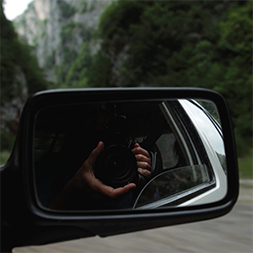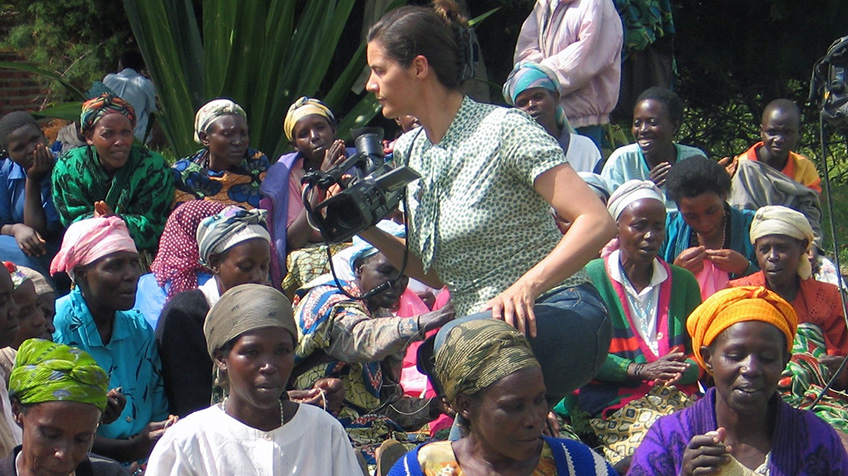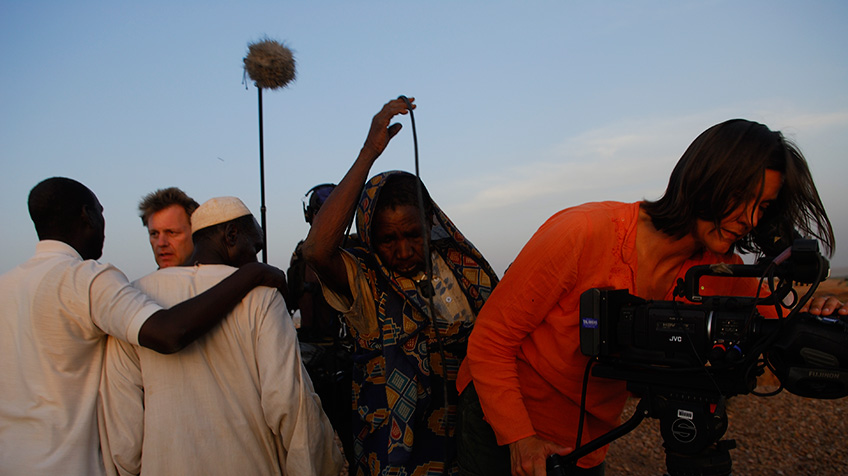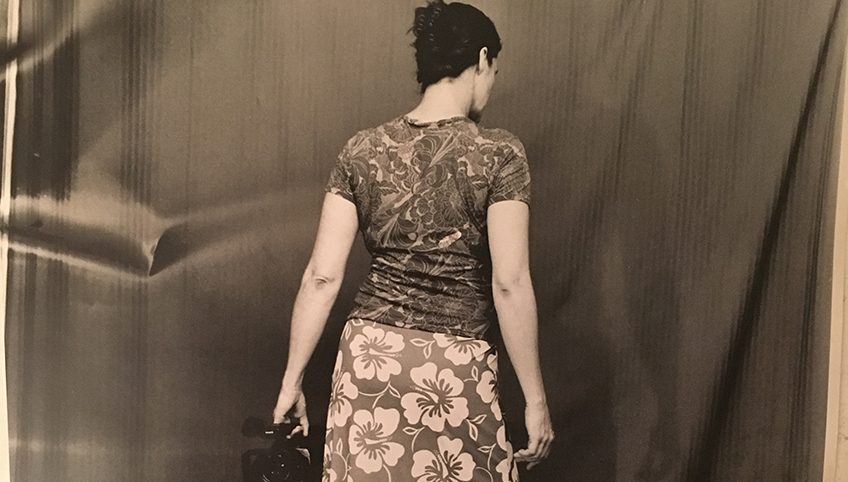The Cameraperson
 트레일러 재생
트레일러 재생
Kirsten Johnson
- USA
- 2016
- 102min
- DCP
- color
Asian Premiere
Synopsis
Exposing her role behind the camera, Johnson reaches into the vast trove of footage she has shot over decades around the world. What emerge is a visually bold memoir and a revelatory interrogation of the power of the camera.
Review
There is one other person between a camera and its object. It is the Cameraperson. A person fully qualified as a filmmaker who can substitute '-person' for '-man' torn off from Cameraman. Kirsten Johnson.
Cameraperson is memoirs that the director writes with image, reflecting on their works, who went all over the world from 2002 to 2016 and looked at the world through the viewfinder. The camera takes a journey from Bosnia through Afghanistan, Liberia, Uganda, Nigeria and to all over the world, in order to look for undisclosed truth. The director reconstructs the decisive moments captured by camera and the scenes that personally influence her, and records them in her proper eyes. She asks what she can show and talk about through a camera located between a man and a man and deeply thinks about the question. The scene selected in footage and her personal everyday life intertwines each other.
The film comprised of poetic and strong moments is abundant without narration. It has the depth of insight, and it is even beautiful. The narrative of self-confession and the tragic reality coexist with beautiful nature in the film. The camera eye that capture the two sides of life. It is behind the camera that she is. 'Cameraperson' Kirsten Johnson, he is the director goes better with the expression than anyone.
“For me, the camera is a sketch book, an instrument of intuition and spontaneity, the master of the instant which, in visual terms, questions and decides simultaneously.” - Henri Cartier Bresson [Hong Jae-hui]
Director
-

Kirsten Johnson
Deadline (2014) The joys of being a documentary cameraperson are endless and obvious: I get to share profound intimacy with the people I film, pursue remarkable stories, be at the center of events as they unfold, travel, collaborate, and see my work engage with the world. I experience physical freedom, the chance at artistic expression and discovery in each moment I hold a camera. No wonder I’ve been doing it for 25 years and love my life. And yet, the dilemmas I face while holding my camera are formidable. There are the concrete challenges I must face in the moment - how to frame, find focus, choose the direction to follow. The other troubles are implicit and often also unseen by the audiences of films I shoot: The people I film are in immediate and often desperate material need, but I offer little to nothing material. I can and will leave a place I film (a war, a refugee camp, etc.) when the people I film cannot. I traffic in hope without the ability to know what will happen in the future. I ask for trust, cooperation and permission without knowing where the filming experience will lead the subject. I alter the balance of power by my presence and act on behalf of one side or another in a conflict. My work requires trust, demands intimacy and entails total attention. To both me and the people I film, it often feels like a friendship or family, but it is something different. I know little about how the images I shoot will be used in the future and cannot control their distribution or use. My work can change the way my subject is perceived by the people who surround him/her and can impact reputation or safety for years into the future. I follow stories the director I work for does not need and/or want me to follow. I fail to see or follow stories the director I work for hopes I will follow.
Credit
- ProducerMarilyn Ness
- Cinematography Kristen Jhonson
- Editor Nels Bangerter
Contribution / World Sales
Contribution / World Sales Catndocs
Phone 33 1 44 61 77 48
E-mail maelle@catndocs.com
Website http://catndocs.com


